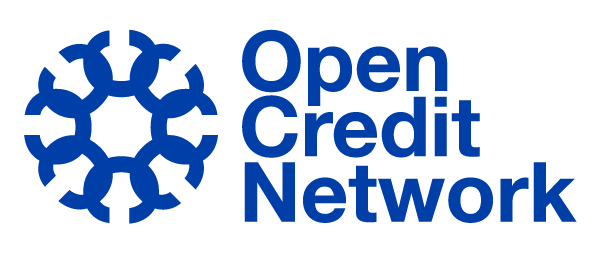A new platform co-op is launching to help organisations collaborate by selling products and services via mutual credit.
Members of the Open Credit Network (OCN) can trade with each other without the need for conventional money by using mutual credit, a method of trading that provides interest-free credit, avoids bank charges, provides greater liquidity, avoids discounting and saves cash for essential purchases.
When businesses join the network, they are listed in a directory with information about what they are offering and what they want. If a business upgrades to become a trading member, they are given access to trade in Open Credit Units (OCUs). One OCU is equivalent to £1. Members then buy and sell goods and services from each other as usual, but can choose to pay some or all of their transactions in OCUs. The agreed number of units are taken from the buyer’s network account and added to the seller’s.
“It doesn’t take a rocket scientist to see how money that is created as interest-bearing debt demands the economy grows year on year. Conventional money and its growth imperative are the root causes of the environmental crisis,” says Oliver Sylvester-Bradley, co-founder of the network. “This is a new way to trade, outside of the existing money system, that’s fairer, more sustainable, more ethical and more co-operative.”
The network has recently completed its start-up phase, during which several members traded in mutual credit using a proof-of-concept accounting system. It has also developed a bespoke directory and accounting system to enable the growth of the network.
As part of its Alpha launch, OCN is now offering the first 350 businesses to join free membership forever, including access to interest-free credit for incorporated businesses. After this, annual membership fees will range from £50 to £2,000 depending on the size of the business, with credit limits varying according to the value of goods and services offered, their trading history and a range of other factors. There will also be a corresponding upper limit to the number of credits a member can hold, to ensure dynamic trading and reduce hoarding across the membership.
“Another thing the network does is work proactively to help members find new customers and suppliers, by manually searching for matches for them and their business needs,” adds Mr Sylvester-Bradley, who also runs Open Co-op, which produces an annual conference to encourage the development of the collaborative economy.
“The Open Credit Network is a co-operative too, so members will have a real say in the governance of the organisation and key business decisions as the network evolves.”
OCN runs on code that was specifically written for the project, but that was specifically intended as a test-bed for a more ambitious project enabling different groups to launch networks that allow inter-trading between members using trust-based accounting. The mutual credit communication system (MCCS) web application provides both directory/account services (to manage accounts and find businesses) and Mutual Credit Exchange services (to transfer mutual credits and review transfer activity.

The OCN Alpha software is now open source.
“We are pleased to have developed this prototype software for OCN, which has allowed us to test the concept, and has enabled OCN to put a working mutual credit system out there for its UK-based audience,” said Geoff Turk, the technical lead on the project.
“The next version of the software will provide a solid back-end service on top of which developers can build a flexible front end, enabling them to offer a mutual credit trading system that is customised to their local audience. Like with the first prototype for OCN, the new software will also be released as free and open-source software.”
OCN works on a volunteer basis, with zero funding, in a small team of three people (with pro-bono help from a coding team) – and it is now looking to expand the co-op by bringing a social media manager and membership manager on board to help grow the project.
“We have a draft business plan and can see a route to financial stability but we need to grow our membership in order to get there,” says Mr Sylvester-Bradley. “The roles are therefore volunteer, collaborator positions, with full voting rights (one member one vote) in the co-op, after a successful probationary period. As key contributors to the project, the Development Crew will be first in line for paid roles once the project is funded.”
For more information, visit: opencredit.network

